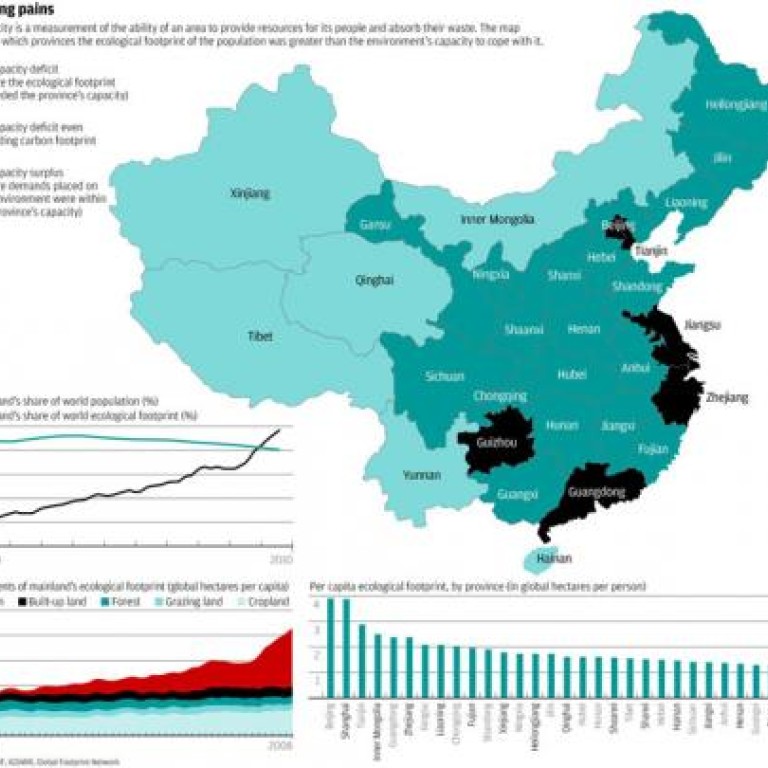
China faces largest ecological deficit ever, WWF report finds
Carbon and other pollutants far exceed process capacity of country's ecosystems, jeopardising human health and a dozen species, report finds
China is experiencing its largest ecological deficit ever - caused by decades of high economic growth and rapid urbanisation - as total emissions of carbon and other pollutants far exceed the capacity of its ecosystems, a new study says.
The "China Ecological Footprint Report", released yesterday by the global conservation body the WWF, also warned that the country's soaring carbon emissions have not only contributed to an avalanche of environmental woes, but also pose grave threats to about a dozen endangered species.
The warnings came just a few days after this year's UN climate talks in Doha ended over the weekend with a disappointing, weak agreement that many believed was far less than what was needed to rein in global warming.
"[Although] China's ecological footprint - or the demand the country places on the natural environment - is lower than the global average, the nation is already consuming 2-1/2 times its bio-capacity - the capacity to regenerate natural resources and absorb carbon emissions," the report said.
Carbon remains the largest component of China's overall ecological footprint, increasing from 10 per cent in 1961 to 54 per cent in 2008, it said.
Most mainland provinces and municipalities are in a bio-capacity deficit, which occurs when insatiable human demands for resources and widespread degradation exceed the nation's ecological capacity.
According to the report, which was jointly compiled by the WWF and other institutes such as the Chinese Academy of Sciences, only six mainland provinces and regions - Tibet, Qinghai, Xinjiang, Inner Mongolia, Hainan and Yunnan - enjoyed a bio-capacity surplus in 2009.
Twenty-five other provinces and municipalities have all seen bio-capacity deficits, largely because of the rapid industrialisation and urbanisation push that Beijing has made over the past three decades.
And even though urban areas generally have much higher per capita footprints than rural areas across the country, rural regions also face daunting challenges in China's anti-pollution drive.
"Reducing the nation's [ecological] footprint isn't a challenge faced by cities alone - it requires balanced development in urban and rural areas and the promotion of sustainable consumption patterns outside of major population centres," said Dr Li Lin of the WWF.
The report also revealed that the populations of more than 10 "flagship and keystone species" in China, such as the Yangtze River dolphin and Siberian tiger, have undergone a marked decline due to hunting, deforestation, habitat loss and intensified human activities.
According to WWF's findings, the Yangtze River dolphin population plummeted by 99.4 per cent from 1980 to 2006, while that of the Chinese alligator fell by 97 per cent from 1955 to 2010.
The report confirmed previous findings that highlighted the flip side of the nation's vaunted economic success.
"China is at a turning point," WWF international director general Jim Leape said. "The choices China makes today regarding consumption, production, investment and trade, and in managing its natural capital, will determine the country's future."


